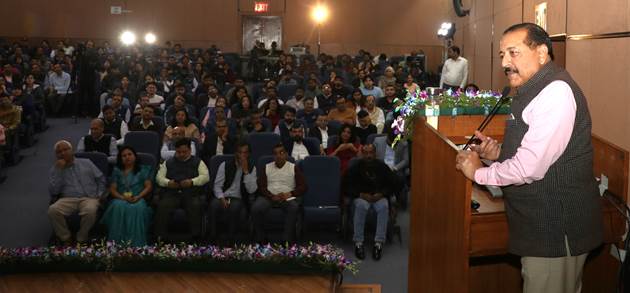Dr. Jitendra Singh, Union Minister of State for Science and Technology, said that India’s Bioeconomy has increased 12 times in the past 10 years.
After inaugurating the ‘National Plant Computational Biology & Bioinformatics Facility’ at the National Institute of Plant Genome Research (NIPGR) as part of the Institute’s Silver Jubilee celebrations, the Minister stated that although India’s bioeconomy was only roughly US$ 10 billion in 2010, it is now US$ 120 billion.
It has increased 12 times in the last 10 years, and by 2030, we hope to have an additional US$ 300 billion, he stated. Furthermore, Dr. Jitendra Singh also declared the launch of ‘ADVIKA’, a new and improved chickpea variety that is climate-savvy and resistant to drought. It is available for wider cultivation and has been announced in the Gazette.
The Minister expressed satisfaction that 74% of the world’s chickpea production comes from India, which might be a good source of foreign exchange earnings. To make the best use of the newest technologies, he advocated for increased integration of science institutes. Additionally, he stressed the importance of industry linkages from the beginning in order to support R&D, startups, and employment opportunities.
According to Dr. Jitendra Singh, institutes like the National Institute of Plant Genome Research (NIPGR) are monuments of excellence and are essential in ensuring that India is a nutritious, healthy, and well-fed country.
Additionally, the Minister said that given the industry’s current boom, India is expected to rank among the top five global hubs for biomanufacturing by 2025. According to him, in the last 10 years, the biotech start-ups have increased to 6,000 in 2023, compared to just 50 in 2014. Three biotech start-ups are formed in India each day with the goal of providing viable technological solutions.
According to Dr. Jitendra Singh, biotechnology offers an environment which is clean and green and more compatible with well-being. As time passes by, it also generated lucrative sources of income and substitutes for the production based on petrochemicals, such as bio-based products like food additives, bioengineering ties, and animal feed products, he continued.
The Department of Biotechnology has been promoting R&D advancements in Advanced Biofuels and “Waste to Energy” technologies, according to Dr. Jitendra Singh.
According to Dr. Jitendra Singh, NIPGR has made significant progress in the last 25 years in terms of new innovations, patents, and plant varieties to support India’s food basket. In the upcoming 25 years, the Amrit Kaal will also play a significant role in addressing the global food security issues that affect not just India but the entire world.



